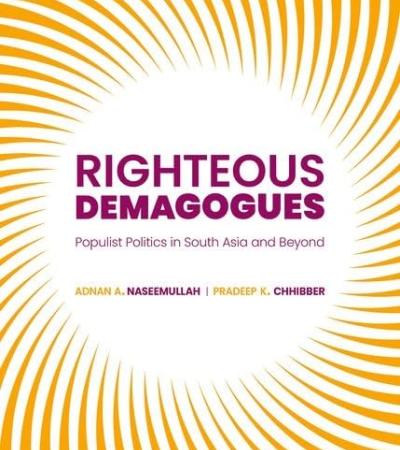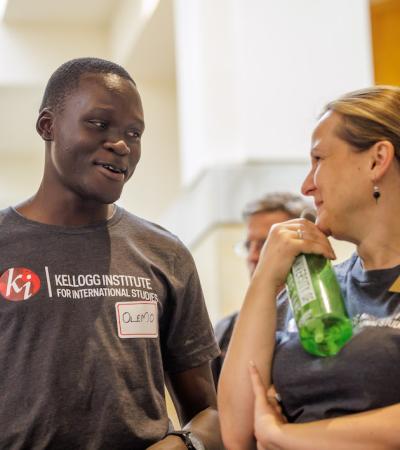Susan Ostermann is an associate professor of global affairs at the University of Notre Dame and an expert in comparative politics in South Asia, regulatory compliance, and environmental regulation. Her work seeks to understand why actors comply with regulations in unlikely circumstances, such as when states are weak or actors have strong incentives to break the law. She has been a Kellogg Institute faculty fellow since 2018.
Her publications include journal articles “Nepal in 2017: Democracy’s Festive Return,” in Asian Survey (2018); “From Quiescent Bureaucracy to Undocumented Wonder: Explaining the Indian Election Commission’s Expanding Mandate” with Amit Ahuja (2018) in Governance; and “Rule of Law against the Odds: Overcoming Poverty and the High Cost of Compliance in the Developing World” (2016) in Law & Policy. She also co-authored, with Pradeep Chhibber, “A Democratic Balance: Bureaucracy, Political Parties and Political Representation” in Jack H. Nagel and Rogers M. Smith (Eds.), Representation: Elections and Beyond (University of Pennsylvania Press, 2013).
Her current projects explore the historical roots of conservatism in Indian political thought, the development and expansion of the Indian Election Commission, and variation in sex ratios throughout the subcontinent.
She was a co-developer of “Global Actors and Institutions,” a core course in the Master of Global Affairs program at the Keough School of Global Affairs.
She earned both a PhD and an MA in political science from the University of California, Berkeley. She also holds a law degree from Stanford Law School and previously worked as an attorney, focusing on class actions and intellectual property disputes. She earned a BA in politics from Pomona College. Before coming to Notre Dame, Ostermann was a visiting assistant professor of government at Wesleyan University.
ISP Advisee(s):
Tia Mittle












